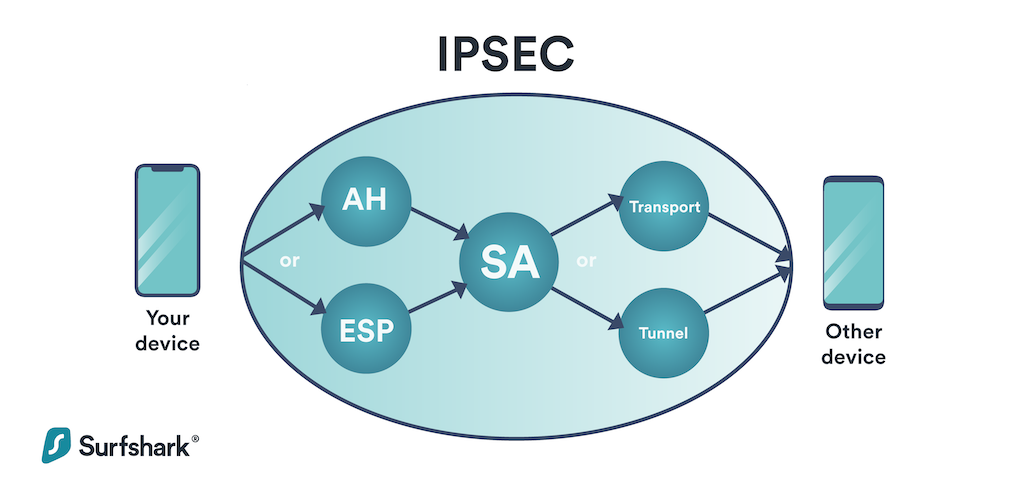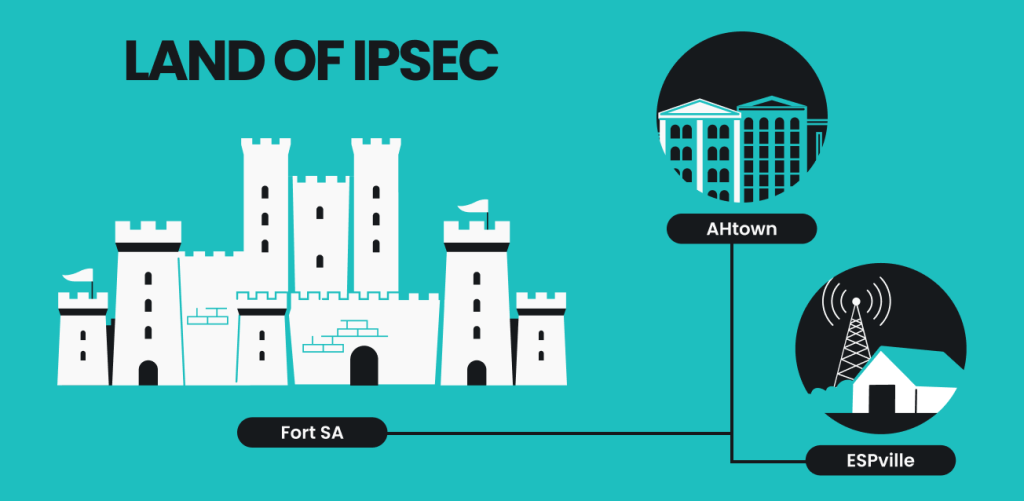Featured
Table of Contents
Understanding Ipsec Vpn Tunnels
IPsec validates and encrypts information packets sent over both IPv4- and IPv6-based networks. IPsec procedure headers are found in the IP header of a packet and define how the data in a packet is handled, including its routing and shipment throughout a network. IPsec adds a number of parts to the IP header, consisting of security information and several cryptographic algorithms.

ISAKMP is defined as part of the IKE procedure and RFC 7296. It is a framework for crucial facility, authentication and settlement of an SA for a secure exchange of packages at the IP layer. Simply put, ISAKMP defines the security parameters for how 2 systems, or hosts, interact with each other.
They are as follows: The IPsec process begins when a host system acknowledges that a packet needs defense and should be transmitted using IPsec policies. Such packets are thought about "intriguing traffic" for IPsec functions, and they trigger the security policies. For outbound packets, this implies the proper encryption and authentication are used.
How Do Ipsec And Vpn Work?
In the second step, the hosts utilize IPsec to work out the set of policies they will utilize for a secured circuit. They likewise confirm themselves to each other and set up a secure channel between them that is used to work out the method the IPsec circuit will secure or authenticate data sent throughout it.

After termination, the hosts get rid of the private secrets used throughout information transmission. A VPN essentially is a personal network implemented over a public network. Anybody who connects to the VPN can access this private network as if directly connected to it. VPNs are typically utilized in companies to enable workers to access their business network from another location.
Usually utilized between protected network entrances, IPsec tunnel mode makes it possible for hosts behind one of the gateways to communicate firmly with hosts behind the other entrance. Any users of systems in an enterprise branch workplace can firmly link with any systems in the primary office if the branch workplace and main workplace have protected entrances to act as IPsec proxies for hosts within the particular offices.
What Is Ipsec? - Internet Protocol Security Explained
IPsec transport mode is utilized in cases where one host needs to engage with another host. The two hosts negotiate the IPsec circuit directly with each other, and the circuit is typically taken apart after the session is complete. A Secure Socket Layer (SSL) VPN is another technique to protecting a public network connection.
With an IPsec VPN, IP packets are safeguarded as they take a trip to and from the IPsec gateway at the edge of a private network and remote hosts and networks. An SSL VPN protects traffic as it moves in between remote users and an SSL entrance. IPsec VPNs support all IP-based applications, while SSL VPNs only support browser-based applications, though they can support other applications with custom development.
See what is best for your organization and where one type works best over the other.
Understanding Ipsec Vpn Tunnels
Lastly, each IPsec endpoint validates the identity of the other endpoint it desires to communicate with, making sure that network traffic and information are just sent out to the designated and permitted endpoint. In spite of its terrific utility, IPsec has a couple of problems worth discussing. First, direct end-to-end communication (i. e., transmission technique) is not constantly offered.
The adoption of various regional security policies in large-scale distributed systems or inter-domain settings might present serious issues for end-to-end communication. In this example, assume that FW1 needs to inspect traffic content to spot intrusions which a policy is set at FW1 to deny all encrypted traffic so as to enforce its content assessment requirements.
Users who utilize VPNs to remotely access a private service network are positioned on the network itself, providing the exact same rights and functional abilities as a user who is linking from within that network. An IPsec-based VPN might be produced in a range of methods, depending on the needs of the user.
What Are Ipsec Policies?
Because these parts may originate from various suppliers, interoperability is a must. IPsec VPNs allow smooth access to enterprise network resources, and users do not necessarily require to utilize web gain access to (access can be non-web); it is therefore an option for applications that need to automate communication in both methods.
Its framework can support today's cryptographic algorithms in addition to more powerful algorithms as they appear in the future. IPsec is a compulsory element of Web Procedure Version 6 (IPv6), which companies are actively releasing within their networks, and is highly suggested for Internet Procedure Version 4 (IPv4) applications.
It provides a transparent end-to-end protected channel for upper-layer protocols, and executions do not require modifications to those procedures or to applications. While having some disadvantages connected to its complexity, it is a mature procedure suite that supports a series of encryption and hashing algorithms and is extremely scalable and interoperable.
Ipsec Protocol Framework - Secure Vpn
Like VPNs, there are lots of ways an Absolutely no Trust design can be executed, but services like Twingate make the procedure considerably simpler than needing to wrangle an IPsec VPN. Contact Twingate today to get more information.

IPsec isn't the most typical web security procedure you'll use today, but it still has a vital function to play in securing internet communications. If you're utilizing IPsec today, it's most likely in the context of a virtual private network, or VPN. As its name suggests, a VPN creates a network connection in between 2 machines over the public internet that's as protected (or nearly as secure) as a connection within a personal internal network: most likely a VPN's many widely known use case is to allow remote staff members to gain access to secured files behind a corporate firewall program as if they were operating in the office.
For the majority of this article, when we say VPN, we suggest an IPsec VPN, and over the next numerous sections, we'll discuss how they work. A note on: If you're looking to set up your firewall to allow an IPsec VPN connection, be sure to open UDP port 500 and IP ports 50 and 51.
Ssl Vpn And Ipsec Vpn: How They Work

Once this has actually all been set, the transport layer hands off the data to the network layer, which is primarily managed by code working on the routers and other components that make up a network. These routers select the route individual network packets take to their location, however the transportation layer code at either end of the communication chain doesn't require to understand those information.
On its own, IP does not have any integrated security, which, as we noted, is why IPsec was established. Today, TLS is constructed into practically all web browsers and other internet-connected applications, and is more than enough protection for daily web usage.
That's why an IPsec VPN can add another layer of protection: it includes protecting the packages themselves. An IPsec VPN connection starts with facility of a Security Association (SA) between two interacting computers, or hosts. In basic, this includes the exchange of cryptographic keys that will allow the parties to encrypt and decrypt their interaction.
Latest Posts
Best Vpns For Business Travelers To Stay Digitally Fit (2023)
The Best Mobile Vpns Of 2023
Best Mobile Vpn 2023